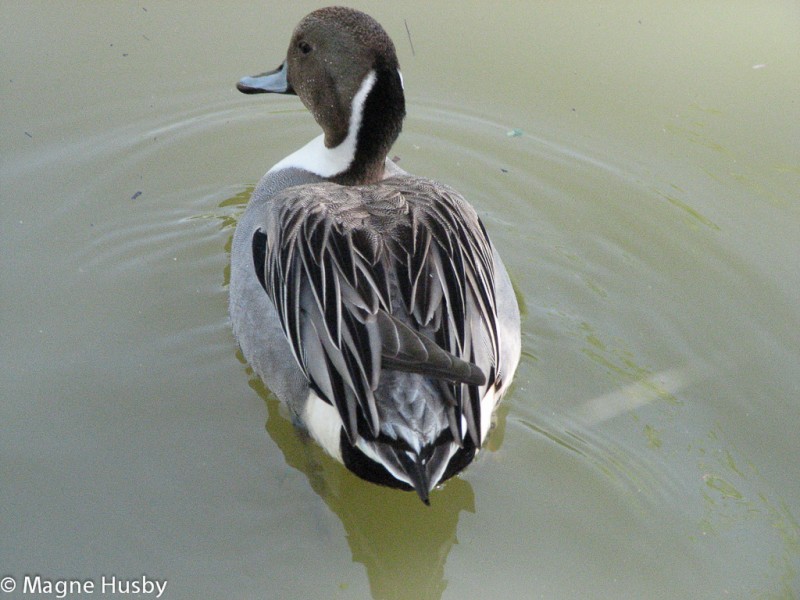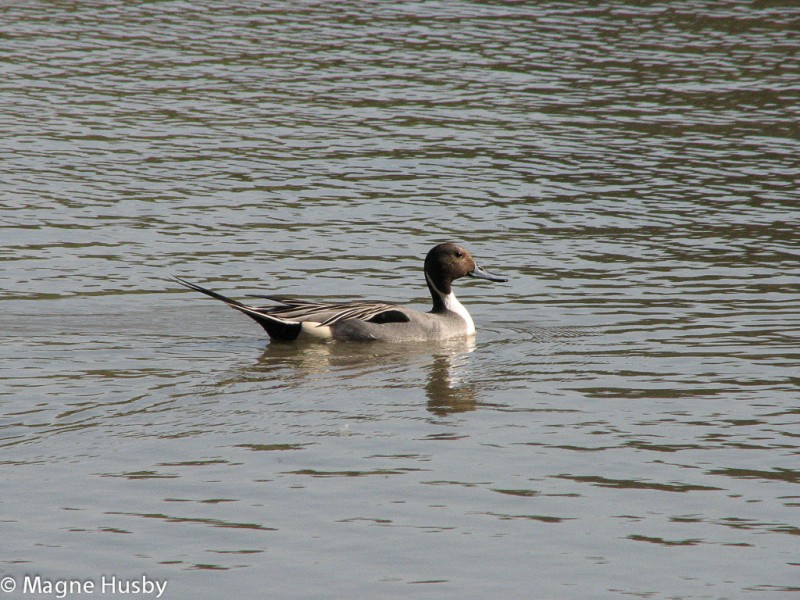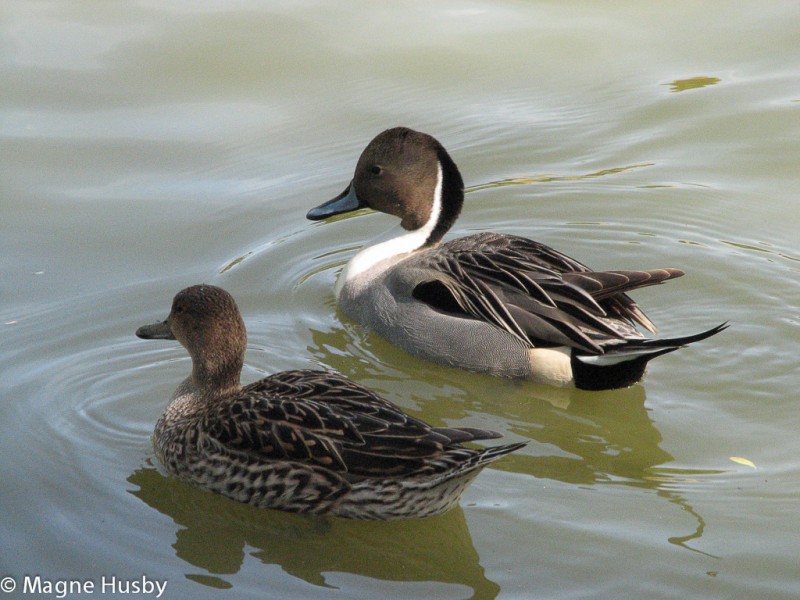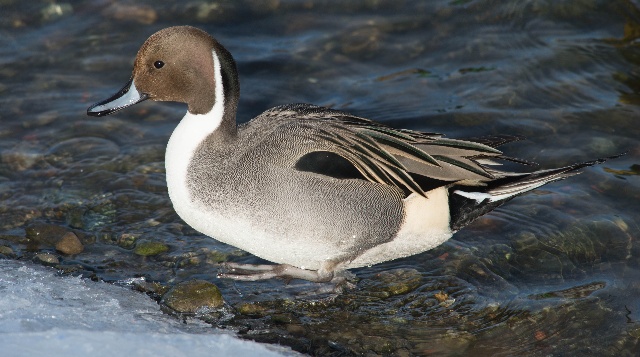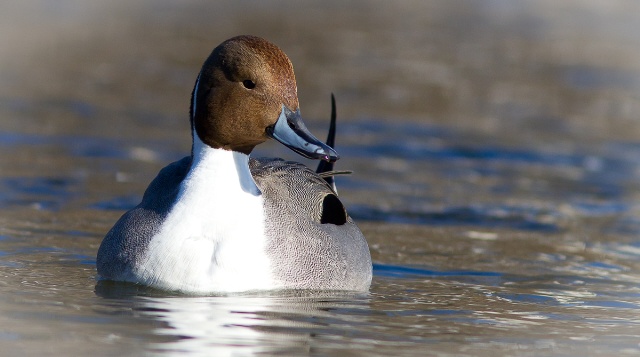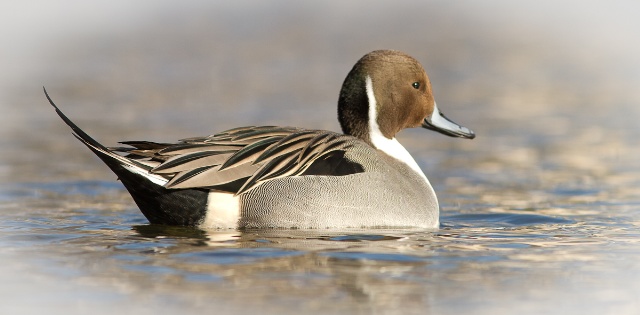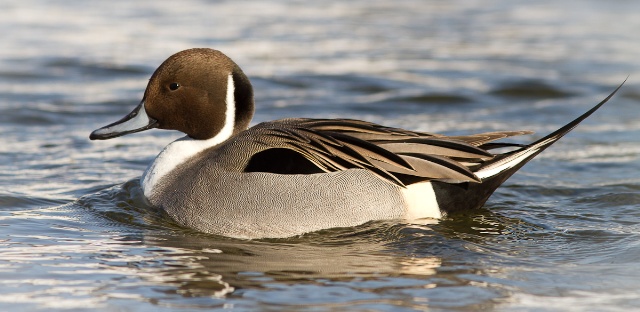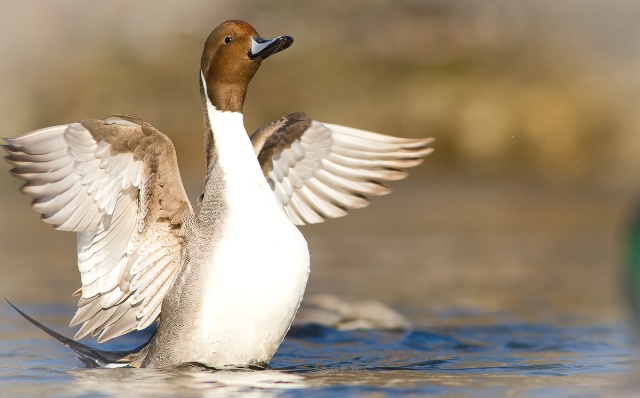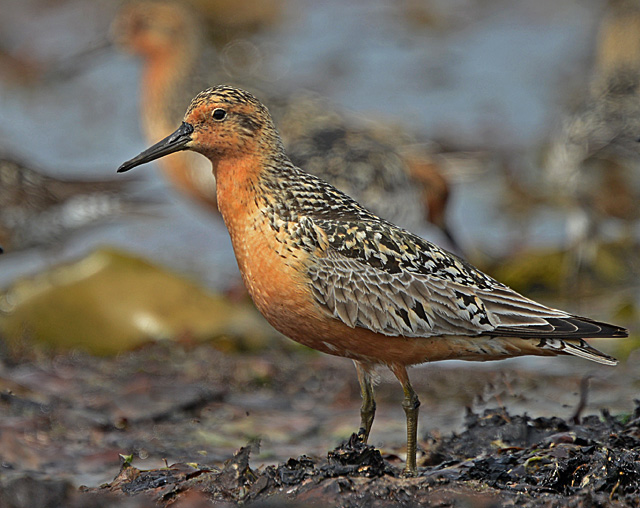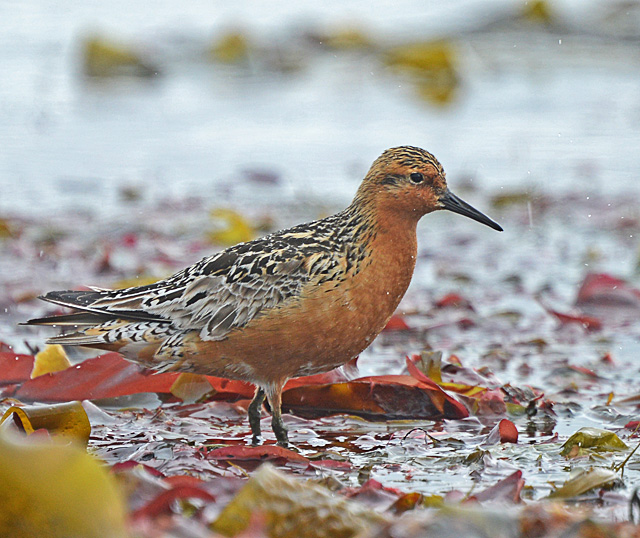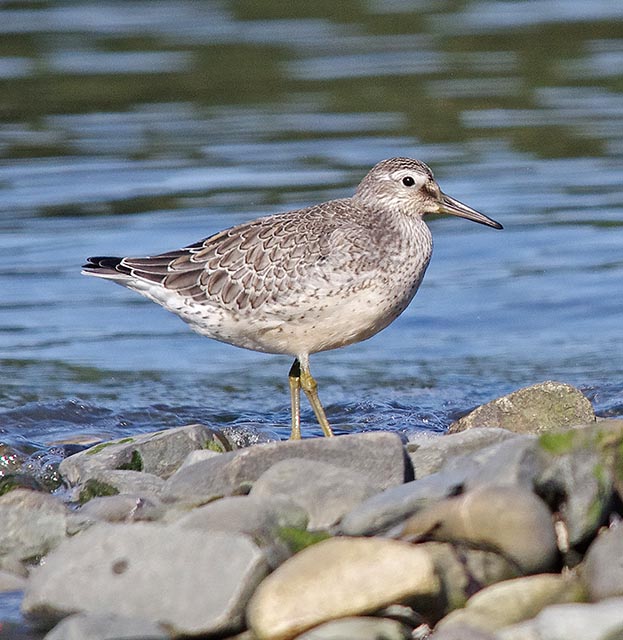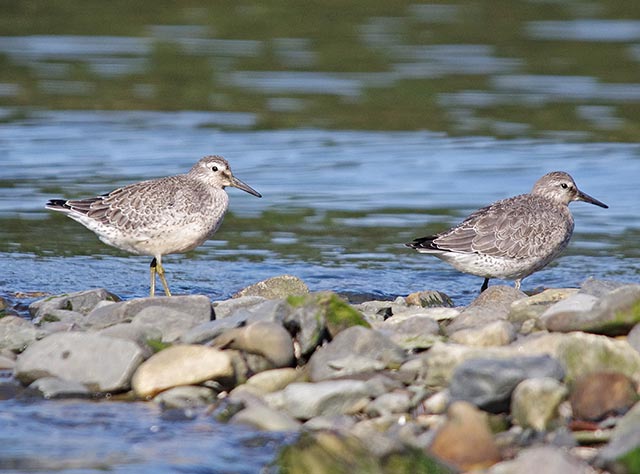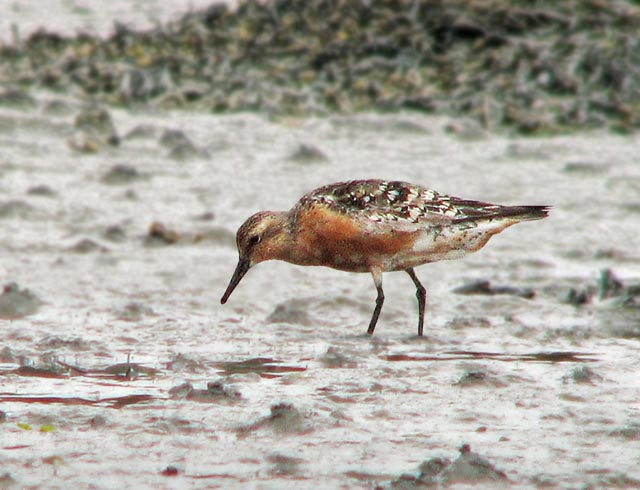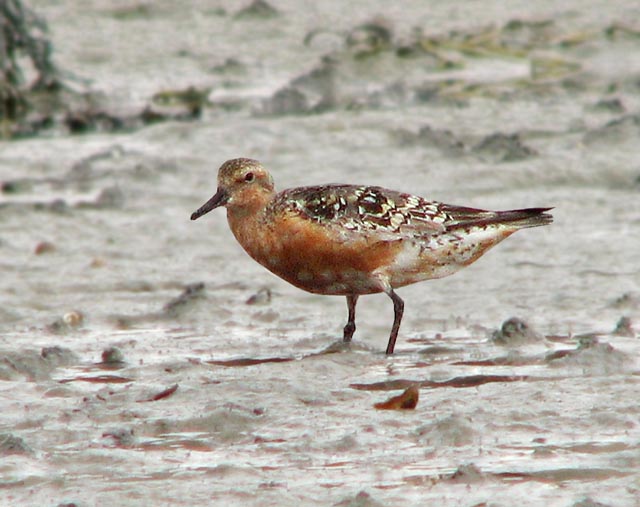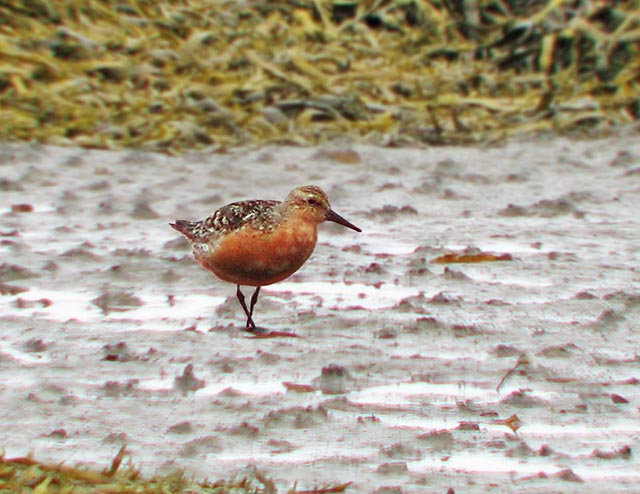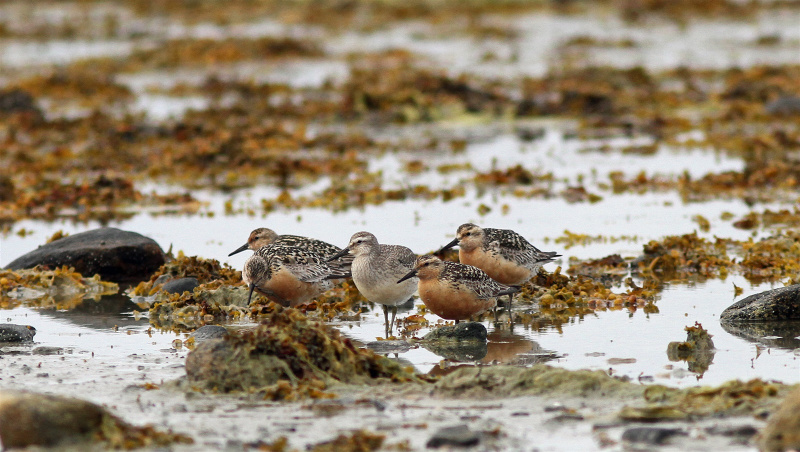Pintail (Anas acuta)
Red Knot (Calidris canutus)
Large dabbling duck. In all plumages distinguished from other dabbling ducks by its slim neck and elegancy. Male with dark brown head, white breast and lower neck, with white wedges extending upwards on side of neck. Long, pin-like tail. Female mostly brown, wattled plumage, with longer tail than other dabbling duck females. Both sexes with bluish bill. Speculum dark green with broad white rear edge. Front edge buff in males. Edges more prominent in flight than the actual speculum. Flight pattern closer to Wigeon than Mallard.
Sound:Female: similar to Mallards coarse laughing sound, but with a more emphasized first "haaa", and a more silent accelerating subsequent "laugh". Male: Pleasant, resonant "plop" similar to Teal, but lower pitched, richer, mellower and not so metallic. Accompanied by a higher pitched, slightly raspy whistling "aiiooo" rising and falling in pitch.
Display-call male:
Distribution:
Wikipedia: map (se also Xeno-canto below)
Ecology:Birdlife ecology
Links:
Observation.org Latest observations
Image search Flickr NB! May give other species
CCSounds:Recorded by Jarek Matusiak,http://www.xeno-canto.org ,CC license
Large, stocky Calidris. Easily identified when direct size-comparison with congeners possible. Elongated body shape and short legs. Bill robust, short and straight. Summer plumage: Upperparts speckled in brown and grey, underparts warm rufous brown, like Curlew Sandpiper. Legs dark. Winter- and juvenile plumage: Pale grey upperparts (scaly pattern in juveniles), and white belly. Legs greenish in both juveniles and winter-plumaged adults. Note pale grey rump and uniformly grey tail in flight. Wing-bars less prominent than in Sanderling.
Sound:Most commonly heard migratory call, a short "kut" or "knot". Sometimes given in stuttering series. Song an undulating, nasal mewing "poooor-mee", or "po-hor-mee".
Contact call, song:
Distribution:
Wikipedia: map (se also Xeno-canto below)
Ecology:Birdlife ecology
Links:
Observation.org Latest observations
Image search Flickr NB! May give other species
CCCC-sounds:Stein Ø. Nilsen, XC317787. Accessible at www.xeno-canto.org/317787.

 English
English Albanian
Albanian
 Armenian
Armenian
 Bulgarian
Bulgarian
 Catalan
Catalan
 Croatian
Croatian
 Czech
Czech
 Danish
Danish
 Dutch
Dutch
 Finnish
Finnish
 French
French
 Georgian
Georgian
 German
German
 Greek
Greek
 Hungarian
Hungarian
 Italian
Italian
 Latvian
Latvian
 Lithuanian
Lithuanian
 Macedonian
Macedonian
 Norwegian
Norwegian
 Polish
Polish
 Portuguese
Portuguese
 Romanian
Romanian
 Russian
Russian
 Sami : Lule sami
Sami : Lule sami
 Sami : North sami
Sami : North sami
 Sami : South sami
Sami : South sami
 Scientific names
Scientific names
 Serbian
Serbian
 Spanish
Spanish
 Swedish
Swedish
 Ukrainian
Ukrainian


